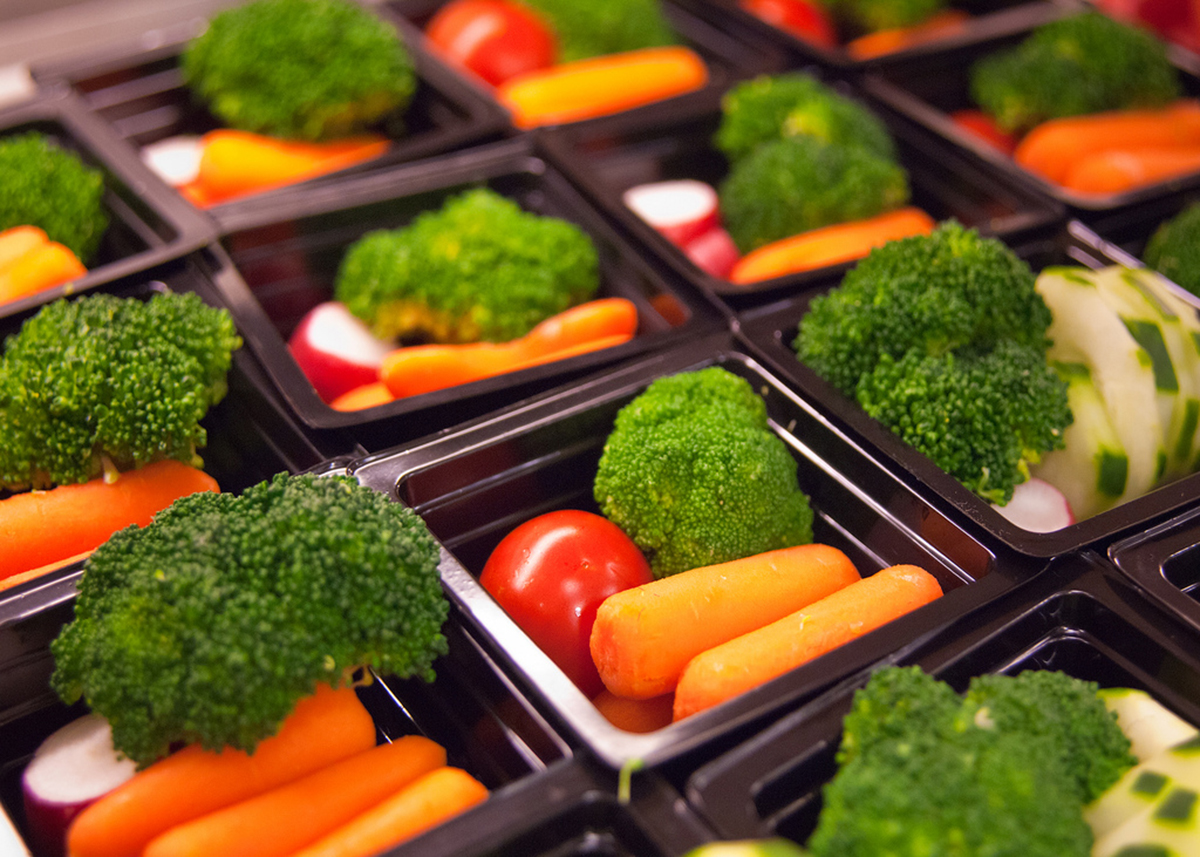Table of Contents
During childhood, healthy eating promotes optimal growth and development. Eating a nutritious diet helps prevent high cholesterol and high blood pressure and also reduces the risk of chronic diseases like cancer, diabetes and heart disease. According to the Centers for Disease Control, healthy eating in childhood is important for preventing health problems such as dental caries, obesity, iron deficiency and osteoporosis.
The Dietary Guidelines for Americans recommends people consume a diet that is complete with whole grains, fat-free and low-fat dairy products, fruits and vegetables.

Schools are also often in a unique position to promote healthy eating habits, through education and also sometimes school meals. Where schools meals are provided, schools can offer children the opportunity to consume a wide array of different foods and beverages and to help them to learn about the importance of eating a healthy diet. It goes without saying that school lunches should only ever offer healthy options. Schools can also go a step further to include nutritional education as a part of a comprehensive health education curriculum.
Having said that, healthy eating begins and ends at home. Parents lead by example, and whether you're a health-food nut or a fast-food junkie, your kids are very likely to follow in your footsteps — regardless of what they're being taught and fed at school. Therefore, making healthy eating and family dinners a priority will benefit your kids for the duration of their life.
Consequences Of Unhealthy Eating In Childhood
If a child does not receive a proper nutritious diet while growing up, it can lead to an energy imbalance, cognitive issues and increase the risk of obesity. In addition, a poor diet can also cause an increased risk of lung, colorectal, prostate, stomach and lung cancers later on in life. Children and youngsters who eat fast food one or more times per week are also at a higher risk of weight gain, becoming overweight and suffering from obesity. Drinking sugary beverages can also result in the same issues, which is why is better to encourage children to drink water as an alternative. If your child is not prone to drinking water, you can offer flavored water, or add fruit to the water to make it more appealing.
READ Cooking With Kids: Are You Brave Enough To Let Your Children Take Control Of The Kitchen?
Through incorporating a healthy and balanced diet during childhood, your son or daughter can grow up to become an adult who makes the right food choices. What we put into our bodies is important to our overall health and when we eat the right foods it cuts our risks of health issues such as cardiovascular disease, obesity and certain type of cancers. Eating right will not only allow a person to be healthier, but it will also increase their quality of life in later years.
- Photo courtesy of rwkvisual via Flickr: www.flickr.com/photos/rwkphotography/3963187280
- Photo courtesy of rwkvisual via Flickr: www.flickr.com/photos/rwkphotography/3963187280
- Photo courtesy of anotherlunch.com via Flickr: www.flickr.com/photos/buzzymelibee/8480757500
- Photo courtesy of USDAgov via Flickr: www.flickr.com/photos/usdagov/6276704367
- www.cdc.gov/family/parenttips/index.htm
- www.cuteparents.net/2012/04/tips-for-raising-healthy-kids.html
- www.cdc.gov/parents/infants/healthy_children.html
- www.healthyeating.org/Healthy-Eating/All-Star-Foods/Milk-Dairy.aspx
- www.healthyeating.org/Healthy-Eating/All-Star-Foods/Meat-Beans.aspx
- www.healthyeating.org/Healthy-Eating/All-Star-Foods/Vegetables.aspx
- www.healthyeating.org/Healthy-Eating/All-Star-Foods/Sweets-Fats.aspx
- www.cdc.gov/healthyyouth/nutrition/facts.htm


Your thoughts on this